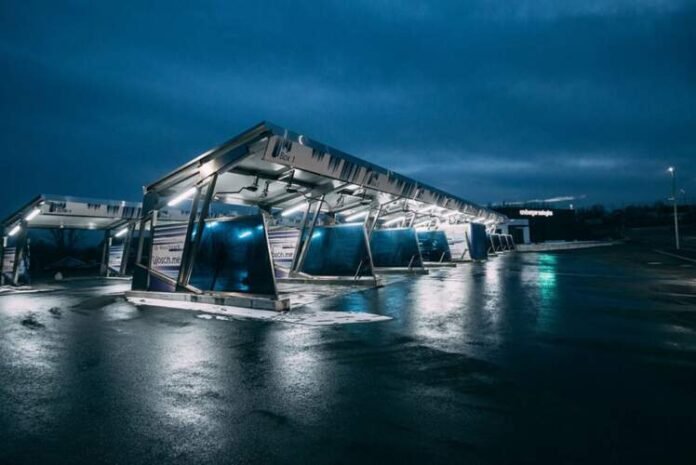When considering a new look for your vehicle, car wraps offer a creative and often more economical option compared to a traditional paint job. Whether you’re a marketing manager looking to give your company cars a fresh brand identity or a small business owner aiming to stand out, understanding the cost and process of car wrapping is crucial. In this article, we’ll delve into the factors that affect car wrap costs and provide you with all the information you need to make an informed decision.
What is a Car Wrap?
A car wrap is a large vinyl decal or graphic applied directly over the original paint of the car. The application of the wrap allows you to change the car’s appearance quickly and easily, and it can be removed without damaging the underlying paint. This flexibility makes car wraps an appealing choice for businesses wanting to update their branding or for individuals looking to customize their vehicles.
Factors Influencing the Cost of a Car Wrap
Size and Type of the Vehicle
The size and type of your vehicle significantly impact the cost of a car wrap. Naturally, larger vehicles like SUVs, vans, or trucks will require more material, thereby increasing the cost. On the other hand, smaller cars such as sedans or compact cars will generally be less expensive to wrap due to the reduced surface area.
Type of Vinyl
The cost of a car wrap also depends on the type of vinyl used. There are several types of vinyl wraps available, each varying in quality, durability, and finish. High-quality vinyl with a glossy, matte, or satin finish will cost more than basic vinyl options. However, investing in higher quality materials often results in better longevity and appearance.
Design and Complexity
A simple, single-color wrap will be less expensive than a custom design that requires intricate detail or multiple colors. If you have a complex design in mind, it may involve additional graphic design work, which can increase the overall cost. For businesses, this investment can be worthwhile for ensuring that the brand’s colors and images are sharp and professional-looking.
Installation
Professional installation is crucial for achieving a high-quality finish. The cost of installation can vary based on the experience and reputation of the installer, as well as the complexity of the job. It’s essential to choose a reputable installer to ensure that the wrap is applied correctly, without bubbles or imperfections, which can detract from the vehicle’s appearance and longevity.
Geographic Location
The cost of car wrapping can vary depending on your geographic location. In metropolitan areas with a high demand for car wraps, prices may be higher compared to rural areas. It’s worth shopping around and getting quotes from various providers to ensure you’re getting the best value for your money.
Typical Cost Range for Car Wraps
Full Car Wrap
A full car wrap for a standard vehicle typically ranges from $2,500 to $5,000. For larger vehicles or those requiring custom designs, the cost can increase to $6,000 or more. This price range includes both materials and labor.
Partial Car Wrap
If a full wrap is beyond your budget, consider a partial wrap. This option covers only certain parts of the vehicle, such as the hood, roof, or sides, and can cost between $1,000 and $3,000. Partial wraps can still provide a significant visual impact at a lower cost.
Custom Designs and Finishes
For custom designs or specialty finishes like chrome or carbon fiber, prices can exceed $10,000. These finishes require specialized materials and additional labor, contributing to the higher cost.
Additional Costs to Consider
Maintenance and Care
While car wraps are durable, they require proper maintenance to preserve their appearance. Regular washing with gentle, non-abrasive cleaning solutions is recommended. Avoiding direct sunlight and harsh weather conditions will also help extend the life of your wrap.
Removal
When it’s time to remove the wrap, professional removal services typically cost between $500 and $600. This ensures that the vinyl is taken off cleanly, without damaging the car’s paint.
Benefits of Car Wrapping
Aside from cost considerations, there are several benefits to choosing a car wrap over a traditional paint job:
- Versatility: Car wraps offer endless design possibilities, allowing for creative and unique designs that stand out.
- Protection: Wraps protect the original paint from UV rays, scratches, and minor abrasions, maintaining the car’s resale value.
- Reversibility: Unlike paint, wraps can be removed or changed easily, making them ideal for temporary promotions or seasonal changes in branding.
Conclusion
Wrapping a car is an excellent way to refresh its appearance, whether for personal enjoyment or as part of a strategic brand communication strategy. By understanding the factors that influence cost, you can budget effectively and choose the best option for your needs. Remember, while the initial investment in a quality wrap may be significant, the benefits of protection, versatility, and visual impact can make it a worthwhile investment for both individuals and businesses alike.
In conclusion, whether you’re a marketing manager seeking to align your fleet with your brand’s voice or a small business owner aiming for visibility, car wraps offer a practical and impactful solution. By leveraging this guide, you can navigate the complexities of car wrapping with confidence, ensuring that your investment reflects your brand’s identity and resonates with your audience.




